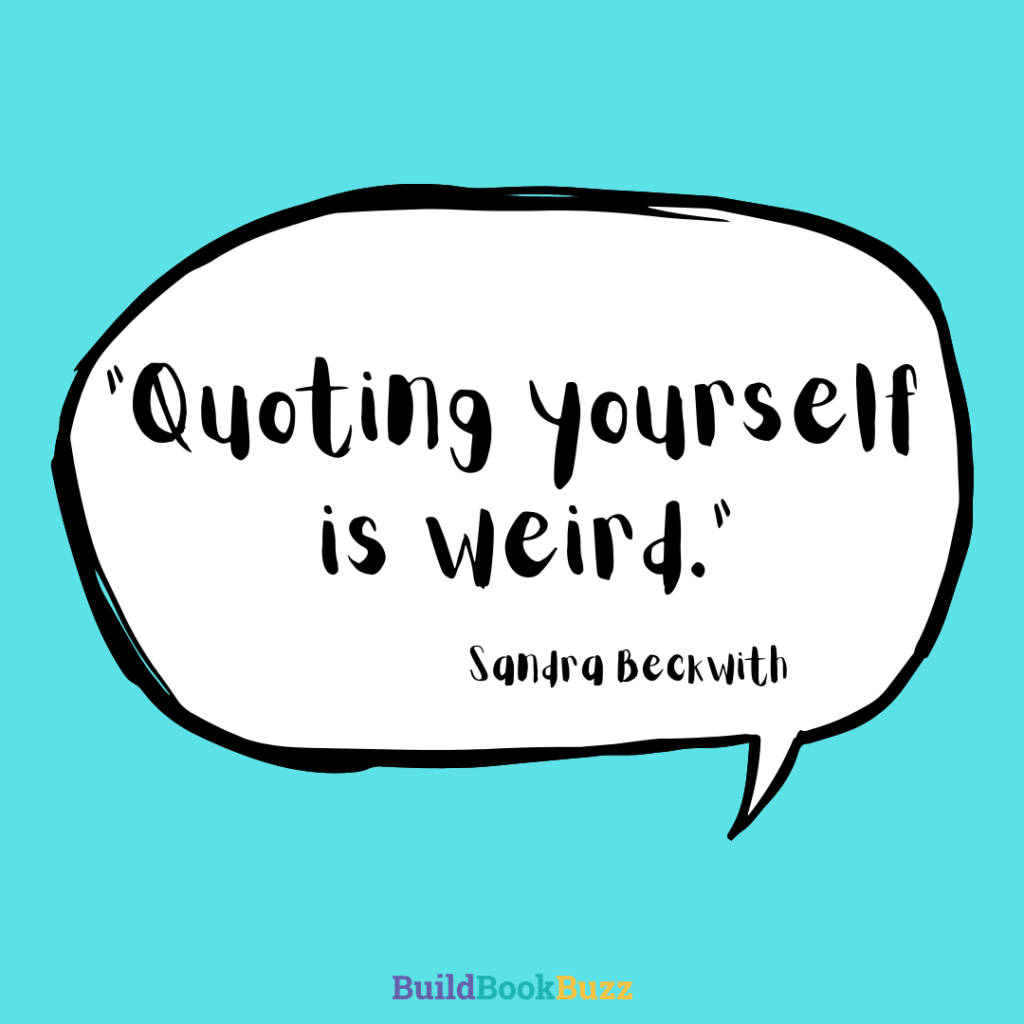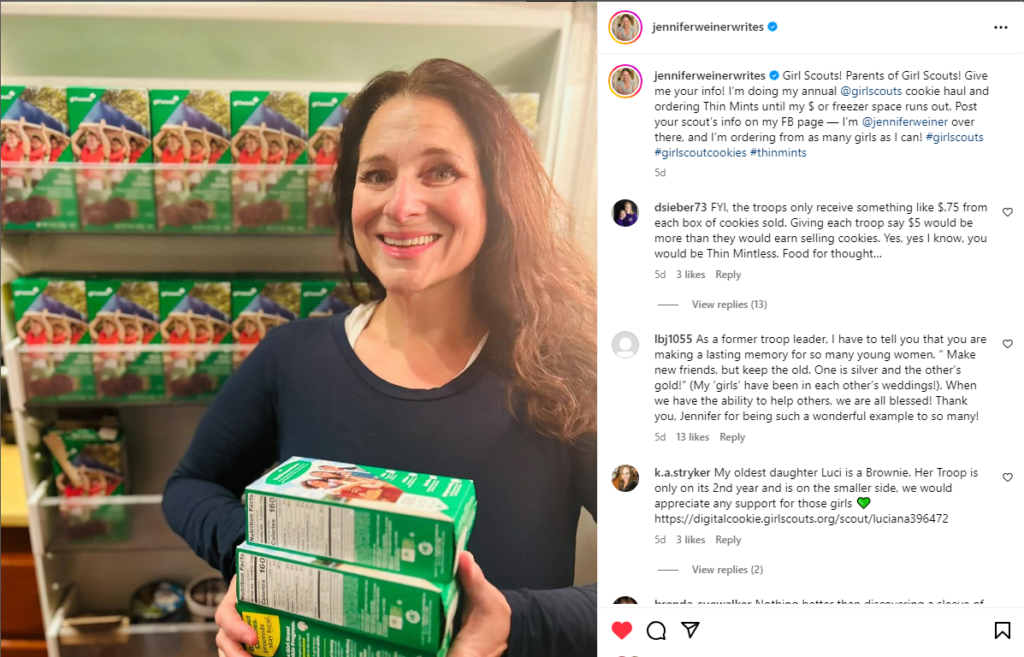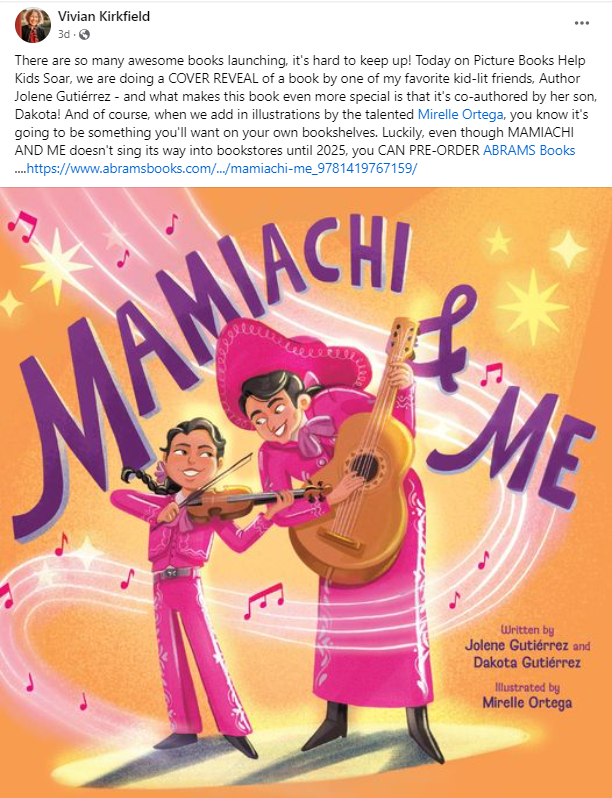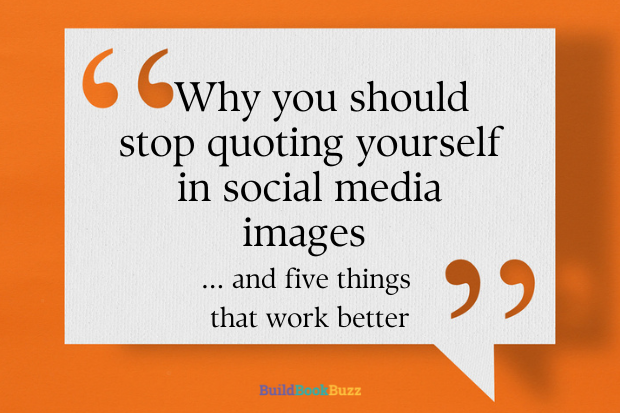Why you should stop quoting yourself in social media images and five things that work better
Quoting yourself in social media images may seem like a great way to showcase expertise, but it can backfire. Here's why.
There’s an unsettling trend among authors and other small business owners with something to promote: self-quoting in social media images.
I realize that many view self-quoting as a great way to assert authority and attract attention. But doing so can backfire if it creates a negative impression.
There’s a fine line between showcasing your talent and coming off as arrogant. And it’s hard for readers to warm up to arrogance.
Many view self-quoting as a great way to assert authority and attract attention. But doing so can backfire.Click to tweetWhat is self-quoting?
For those who haven’t seen this practice, self-quoting refers to how people combine a statement they’ve made (or made up) that they think is profound, wise, or insightful with a background image.
The statement is positioned with quotation marks, of course. The self-quoter’s name is included as attribution. Here’s a tongue-in-cheek example.

People typically do this for two reasons:
- To call attention to their expertise
- To encourage others to share the image so that the wisdom in the quote reaches more people
What many who do this don’t realize, though, is that when they continuously quote themselves, they begin to look self-involved. Where’s the humility?
Readers who aren’t impressed with the ongoing self-quotations won’t engage with the content and will instead move on to someone who seems less arrogant.
Who decides what’s quotable, anyway?
It’s not just about turning off readers, though. There’s another thing to consider.
It’s about who should decide who and what is quotable.
I’m not quotable because I say I am. I’m quotable because you decide that I am.
I’m not quotable because I say I am. I’m quotable because you decide that I am.Click to tweetI don’t get to decide what I write or say that is so meaningful that more people need to know about it. You do.
Most authors like you and me write to educate, entertain, or inform. We might want to teach something. Or maybe change opinions. Or to help people escape from reality, one page at a time.
If we write something noteworthy in our books … if we say something fascinating in a workshop or podcast … if we share unusual wisdom in blog articles or social media posts … we can’t declare it noteworthy, fascinating, or wise. Only our readers and connections can.
It’s not our decision to make about ourselves.
What works better than quoting yourself in social media images?
Here are a few strategies that offer a better “look” and outcome.
1. Genuinely engage with your audience.
Readers are drawn to genuine, relatable voices that resonate with their own experiences and emotions. This connection builds trust.
It’s about authenticity, not ego-focused promotion. (However, for some, ego-focused promotion is authentic.) It’s about being open to discussions, feedback, and idea-sharing.
It’s about sharing a bit of yourself, rather than quoting yourself.
One of the best examples I’ve seen of this recently was novelist Jennifer Weiner’s Instagram post offering to buy Girl Scout cookies from as many of her followers’ Scouts as possible.

Anybody who likes Thin Mints®, was a Scout, or is the parent of a Scout, will relate.
2. Support other authors.
Rather than quote yourself, quote other authors. (Keep reading for a tool that will help you do that.)
Support those you trust and respect. Share statements they’ve made that have moved you or that could make a difference for others.
When you showcase and promote your peers or role models, you’ll not only help them reach more people with their messages, you’ll make a statement about yourself.
One person who does this as well as anyone I know is children’s book author Vivian Kirkfield. On her blog and social media accounts, Vivian shares cover reveals and hosts virtual book tour Q&As for other children’s book authors, among other things.

(And she never quotes herself in social graphics.)
3. Share value-added content.
Offer content that educates, entertains, or inspires readers.
If you write nonfiction, this might be how-to content. Fiction writers can share writing advice or provide a behind-the-scenes peek into where the creativity happens.
4. Find your humble self.
Most authors are humble. If anything, most are the opposite of braggadocious or self-absorbed.
Even many of those I know who quote themselves aren’t doing it because they have over-enlarged egos that could benefit from surgical reduction. They simply think that this is a way to position themselves as experts.
I hope I’ve debunked that myth today.
So show that humility. Be your authentic self. Share personal stories, passions, or struggles. In other words, be genuinely likable for who you are, not who you are posing as.
Authenticity creates connections and encourages trust. Readers instinctively support people they like and trust.
5. Be grateful.
I realize that this could sound like a command. It’s not. I’m simply encouraging you and me to pause regularly to appreciate the support we receive from readers, followers, reviewers, and other authors.
Where would we be without these people? Let’s thank them on occasion, or give them a gift. A new short story, a worksheet, or a cheat sheet are just a few examples of how to do that.
Who can you quote instead of yourself?
I hope I’ve convinced you that quoting yourself in social media images isn’t in your best interest.
Quoting someone else is, though.
So, who can you quote?
Here’s a challenge for anyone looking for more ways to engage their readers online: Today, identify three authors you admire or want to support and find something they’ve written that you can use in a “quote graphic.”
I’ve created a super-simple form you can use for this (and thanks to a new free tool I’ve discovered, I even set it up so you can type into it!). Download it here.
Once you’ve identified the quotes you’ll share, follow the instructions (with tools) for creating those images in my article, “How to create book promotion quote graphics that help you sell.”
Focus on book promotion, not self-promotion
Quoting yourself in social media images crosses that line that separates book promotion from self-promotion.
Quoting yourself in social media images crosses that line that separates book promotion from self-promotion.Click to tweetWhile a certain amount of self-promotion is necessary to help sell books, especially with nonfiction authors, you can do that without coming across as boastful.
In addition, by keeping the focus on your book rather than yourself, you won’t have to consider how your intentions might be misunderstood or misinterpreted.
Find that balance between showcasing your expertise and appealing to your target audience so you develop meaningful connections and build the positive reputation you’ve earned.
What author behavior do you see on social media that gives you pause? Please tell us about it in a comment.
Like what you’re reading? Get it delivered to your inbox every week by subscribing to the free Build Book Buzz newsletter. You’ll also get my free “Top 5 Free Book Promotion Resources” cheat sheet immediately!


I would think pulled quotes in our blogs or newsletters would be ok. What do you think, Sandra?
Jeanne, it’s a personal choice, for sure. In that situation, I’d cite the newsletter or blog, not myself, but you might be comfortable citing yourself.
Sandy
Excellent advice. I admit I’ve never quoted myself. I didn’t even know it was a thing. Which suggests my author friends don’t do it either.
I like your ideas on self promotion, though.
Vivienne, I’m happy to know this is a new concept for you! I’m glad you find the suggestions helpful, too. Thanks for weighing in.
Sandy
I know nothing about self-quoting, but IMO the only thing that might be wrong with it is getting it wrong. Anyone who writes books and wants others to read them is obviously not being humble. She’s “self-quoting” herself for eighty or ninety thousand words. If that writer is clever, and comes up with a series of great taglines, what’s wrong with giving them a try?
Barry, everybody gets to decide what works for them. “You do you” applies! I’ve got 2 thoughts on your comment. First, the thing about marketing is that it’s not what WE like that matters, it’s what our AUDIENCE likes. The 2 might be different. So…I prefer to let my readers decide what’s a great tagline from my books and what isn’t. Second, if your example writer is pulling something clever from his book to quote, I recommend using the book title for attribution, not the author’s name.
Thanks for the comment. It’s always good to hear from you. And totally random and unrelated, I LOVE your book covers. I knew the genre immediately, because it’s the genre I read the most. I’ll have to start with your first in the series.
Sandy